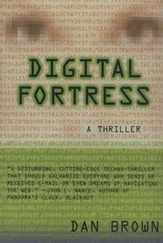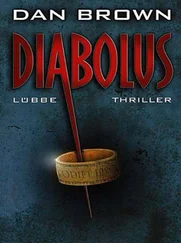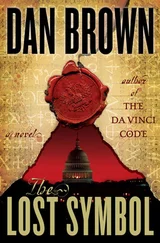Hale shrugged. “He doesn’t seem to mind you here. He must really enjoy your company.”
Susan forced herself to keep silent.
Hale chuckled to himself and put away his tofu. Then he grabbed a quart of virgin olive oil and took a few swigs. He was a health fiend and claimed olive oil cleaned out his lower intestine. When he wasn’t pushing carrot juice on the rest of the staff, he was preaching the virtues of high colonics.
Hale replaced the olive oil and went to down his computer directly opposite Susan. Even across the wide ring of terminals, Susan could smell his cologne. She crinkled her nose.
“Nice cologne, Greg. Use the entire bottle?
Hale flicked on his terminal. “Only for you, dear.”
As he sat there waiting for his terminal to warm up, Susan had a sudden unsettling thought. What if Hale accessed TRANSLTR’s Run‑Monitor? There was no logical reason why he would, but nonetheless Susan knew he would never fall for some half‑baked story about a diagnostic that stumped TRANSLTR for sixteen hours. Hale would demand to know the truth. The truth was something Susan had no intention of telling him. She did not trust Greg Hale. He was not NSA material. Susan had been against hiring him in the first place, but the NSA had had no choice. Hale had been the product of damage control.
The Skipjack fiasco.
Four years ago, in an effort to create a single, public‑key encryption standard, Congress charged the nation’s best mathematicians, those at the NSA, to write a new super algorithm. The plan was for Congress to pass legislation that made the new algorithm the nation’s standard, thus alleviating the incompatibilities now suffered by corporations that used different algorithms.
Of course, asking the NSA to lend a hand in improving public‑key encryption was somewhat akin to asking a condemned man to build his own coffin. TRANSLTR had not yet been conceived, and an encryption standard would only help to proliferate the use of code‑writing and make the NSA’s already difficult job that much harder.
The EFF understood this conflict of interest and lobbied vehemently that the NSA might create an algorithm of poor quality‑something it could break. To appease these fears, Congress announced that when the NSA’s algorithm was finished, the formula would be published for examination by the world’s mathematicians to ensure its quality.
Reluctantly, the NSA’s Crypto team, led by Commander Strathmore, created an algorithm they christened Skipjack. Skipjack was presented to Congress for their approval. Mathematicians from all over the world tested Skipjack and were unanimously impressed. They reported that it was a strong, untainted algorithm and would make a superb encryption standard. But three days before Congress was to vote their certain approval of Skipjack, a young programmer from Bell Laboratories, Greg Hale, shocked the world by announcing he’d found a back door hidden in the algorithm.
The back door consisted of a few lines of cunning programming that Commander Strathmore had inserted into the algorithm. It had been added in so shrewd a way that nobody, except Greg Hale, had seen it. Strathmore’s covert addition, in effect, meant that any code written by Skipjack could be decrypted via a secret password known only to the NSA. Strathmore had come within inches of turning the nation’s proposed encryption standard into the biggest intelligence coup the NSA had ever seen; the NSA would have held the master key to every code written in America.
The computer‑savvy public was outraged. The EFF descended on the scandal like vultures, ripping Congress to shreds for their naivete and proclaiming the NSA the biggest threat to the free world since Hitler. The encryption standard was dead.
It had come as little surprise when the NSA hired Greg Hale two days later. Strathmore felt it was better to have him on the inside working for the NSA than on the outside working against it.
Strathmore faced the Skipjack scandal head‑on. He defended his actions vehemently to Congress. He argued that the public’s craving for privacy would come back to haunt them. He insisted the public needed someone to watch over them; the public needed the NSA to break codes in order to keep the peace. Groups like the EFF felt differently. And they’d been fighting him ever since.
David Becker stood in a phone booth across the street from La Clinica de Salud Publica; he’d just been ejected for harassing patient number 104, Monsieur Cloucharde.
Things were suddenly more complicated than he’d anticipated. His little favor to Strathmore‑picking up some personal belongings‑had turned into a scavenger hunt for some bizarre ring.
He’d just called Strathmore and told him about the German tourist. The news had not been received well. After demanding the specifics, Strathmore had fallen silent for a long time. “David,” he had finally said very gravely, “finding that ring is a matter of national security. I’m leaving it in your hands. Don’t fail me.” The phone had gone dead.
David stood in the phone booth and sighed. He picked up the tattered Guia Telefonica and began scanning the yellow pages. “Here goes nothing,” he muttered to himself.
There were only three listings for Escort Services in the directory, and he didn’t have much to go on. All he knew was that the German’s date had red hair, which conveniently was rare in Spain. The delirious Cloucharde had recalled the escort’s name as Dewdrop. Becker cringed‑Dewdrop? It sounded more like a cow than a beautiful girl. Not a good Catholic name at all; Cloucharde must have been mistaken.
Becker dialed the first number.
* * *
“Servicio Social de Sevilla,” a pleasant female voice answered.
Becker affected his Spanish with a thick German accent. “Hola,?hablas Aleman?”
“No. But I speak English” came the reply.
Becker continued in broken English. “Thank you. I wondering if you to help me?”
“How can we be of service?” The woman spoke slowly in an effort to aid her potential client. “Perhaps you would like an escort?”
“Yes, please. Today my brother, Klaus, he has girl, very beautiful. Red hair. I want same. For tomorrow, please.”
“Your brother Klaus comes here?” The voice was suddenly effervescent, like they were old friends.
“Yes. He very fat. You remember him, no?”
“He was here today, you say?”
Becker could hear her checking the books. There would be no Klaus listed, but Becker figured clients seldom used their real names.
“Hmm, I’m sorry,” she apologized. “I don’t see him here. What was the girl’s name your brother was with?”
“Had red hair,” Becker said, avoiding the question.
“Red hair?” she repeated. There was a pause. “This is Servicio Social de Sevilla. Are you sure your brother comes here?”
“Sure, yes.”
“Senor, we have no redheads. We have only pure Andalusian beauties.”
“Red hair,” Becker repeated, feeling stupid.
“I’m sorry, we have no redheads at all, but if you—”
“Name is Dewdrop,” Becker blurted, feeling even stupider.
The ridiculous name apparently meant nothing to the woman. She apologized, suggested Becker was confusing her with another agency, and politely hung up.
Strike one.
* * *
Becker frowned and dialed the next number. It connected immediately.
“Buenas noches, Mujeres Espana. May I help you?”
Becker launched into his same spiel, a German tourist who was willing to pay top dollar for the red‑haired girl who was out with his brother today.
This time the response was in polite German, but again no redheads. “Keine Rotkopfe, I’m sorry.” The woman hung up.
Читать дальше











